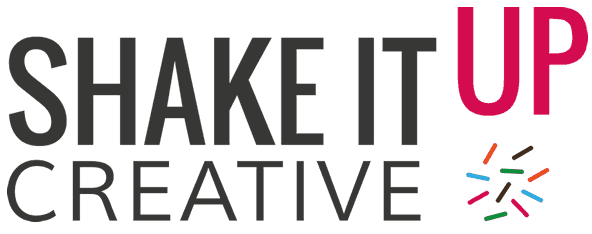
One main piece of advice we often give to our clients and also to our #ShakeItHUB visitors is that all of their marketing efforts can and should lead potential customers to their website. Why? Because that’s where they’ll connect with them through their copy (written specifically for their audience) and through the website design which stems from their logo and branding. Websites are no longer simply ‘nice to have’ when it comes to marketing your business. A business website is essential to your marketing strategy; it’s where you have complete control over how you communicate with people and establish your credibility.
75% of people base credibility by a website
UK Web Host Review
Here are our top 3 reasons why website design is important for business
- To communicate effectively with potential clients and customers
- To show that you are a professional and credible business; experts in your field
- To facilitate conversions from your marketing efforts
It’s never been more important for businesses to communicate directly with their potential clients and customers than now. Brexit, saturated marketplaces and increasingly digital-savvy customers are just a few reasons why having your own online presence is vital. This is how you can connect with your customers, demonstrate how you can solve their problems and offer up exactly what they need or are looking for. In addition, it’s where you can and should get specific and speak to your intended audience only. You can do this through the copy that you create, the language and imagery you use. No matter what your industry sector is or if you are B2B or B2C, your website needs to be targeted. On your website, you are in control.
Here’s a great example:

Jenny resonates with someone who:
- is looking for a high-end photographer who specialises in wedding photography
- cares about experience and expertise
- values quality over quantity
- wants their wedding story to be told by someone they trust
Jenny has shown this through her targeted copy and by showcasing her wedding specific photography (she doesn’t include any other photography services on her website), her awards and what her previous customers’ experiences were.
An example of a location specific targeted website is Platform 9.

The Platform 9 website speaks directly to someone who:
- is looking to join a business community in Brighton & Hove
- is in need of a place to work
- wants to work within contemporary surroundings
- has a collaborative mindset
- needs a flexible working environment
One of the reasons these websites so successfully target their potential customers is that they talk directly to their target clients through their marketing. And their website is a key marketing tool for them as it should be for your business.
Having a website for your business shows you’re professional and that you take your business seriously. It’s the place where you can prove your credibility and your expertise. One important point to bear in mind though, is that although your website must be branded, professional and reflect who you are and what you do, it should not be for you, or all about you. It should be for and all about your customers. It needs to be user friendly, easy to navigate, clear and concise; showing or telling them what to do next. By providing a good user experience, you’re proving your credibility and expertise at the same, alongside your business specific content, copy and visual communication.
Look at Graze as another great example:

Credibility is proven through:
- clear and concise product descriptions and photos/images
- a visually rich interface with professionally designed graphics
- Trustpilot reviews
- a clear CTA that is visually consistent
- social media links
And look at this example of a B2B website.

This website oozes credibility and expertise through:
- the imagery used
- clear CTAs that are visually consistent encouraging engagement with the platform
- data driven results
- logos of well known companies they work with
- a graphical representation of how it all works
Your business website is the best marketing tool you have for proving your credibility and expertise. So use it! Ensure that it looks professional, engages with your customers and offers a good user experience.
If you use other ways to market your business either offline or online, then having a business website is how you can facilitate and maximise conversions from those other marketing efforts. Think of your website as the ‘mothership’ with your newsletter, social media, promotional materials and advertising pointing to your website. If it’s a flyer, you might include a URL to a landing page giving more information about that specific offer with a CTA. If it’s a social media post, be sure to include the URL to a service or product page on your website. The messages about you, your business and your customers can be solidified through your website in order to maximise your other marketing activities. In addition, when customers find your website from various other sources, they’ll resonate with your copy and graphic communication and see that you are a credible business and experts in your industry.

Website design is important for business – it needs to be a key part of your marketing strategy. So, if this post has inspired you to prioritise your business website and you’d like some guidance, please get in touch with us or leave us a comment below.
Meg Fenn, Director of Shake It Up Creative
